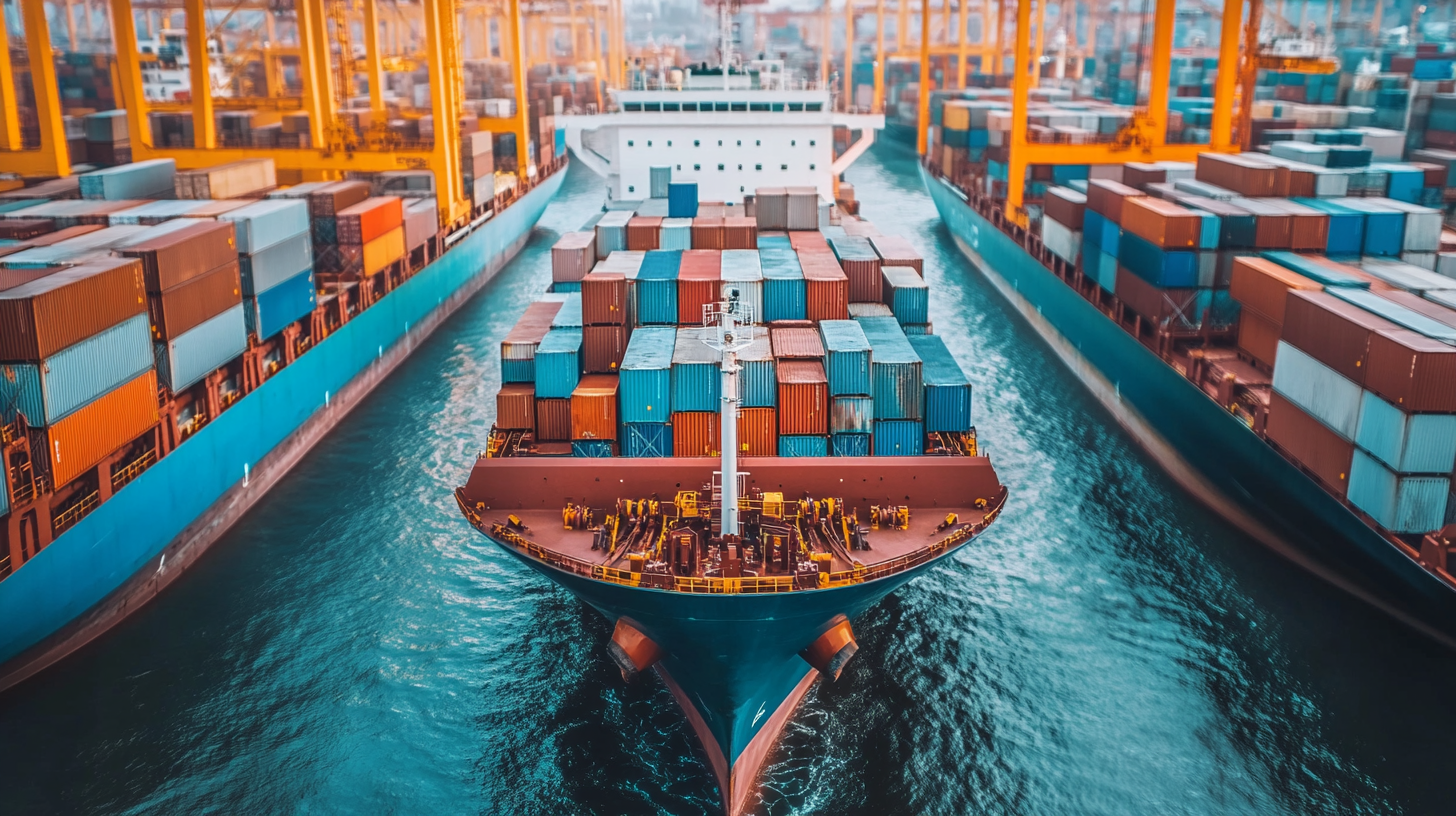
Discovering the Best Suppliers Beyond the Conventional Choices for Global Buyers
 In today's increasingly globalized marketplace, buyers are constantly seeking the best suppliers to meet their diverse needs. According to a recent report by Statista,
global supplier sourcing is projected to reach $1.5 trillion by 2025, highlighting the growing importance of identifying suppliers who
not only provide quality products but also cater to specific requirements. Many buyers still rely on conventional choices, but as competition intensifies, exploring beyond these limitations
can lead to significant advantages. Different types of products offer unique characteristics and applications, which necessitates a thorough understanding of how to select the right supplier for
each category. In this blog, we will delve into the nuances of product types and their suitability while equipping global buyers with actionable insights on navigating the supplier landscape effectively.
In today's increasingly globalized marketplace, buyers are constantly seeking the best suppliers to meet their diverse needs. According to a recent report by Statista,
global supplier sourcing is projected to reach $1.5 trillion by 2025, highlighting the growing importance of identifying suppliers who
not only provide quality products but also cater to specific requirements. Many buyers still rely on conventional choices, but as competition intensifies, exploring beyond these limitations
can lead to significant advantages. Different types of products offer unique characteristics and applications, which necessitates a thorough understanding of how to select the right supplier for
each category. In this blog, we will delve into the nuances of product types and their suitability while equipping global buyers with actionable insights on navigating the supplier landscape effectively.
Exploring Innovative Supplier Networks for Global Sourcing
In today’s competitive landscape, global buyers are increasingly looking beyond traditional suppliers to enhance their procurement strategies. According to a recent report by McKinsey & Company, businesses that embrace innovative supplier networks can reduce costs by up to 30% while improving product quality. This shift is driven by an ongoing need for agility in supply chains, allowing companies to respond quickly to market changes and consumer demands.
Exploring unconventional supplier networks opens doors to diverse partnerships, including startups and regional manufacturers that offer unique capabilities and insights. A study from Deloitte highlights that buyers who engage with alternative sourcing options experience a 20% increase in innovation within their product lines. By leveraging these networks, global buyers not only gain access to new technologies and processes but also enhance their sustainability efforts as they tap into suppliers focused on eco-friendly practices. The future of global sourcing lies in this exploration of innovative supplier partnerships, which not only drives efficiency but also fosters creativity and resilience.
Supplier Diversity in Global Sourcing
This chart illustrates the diversity of suppliers that global buyers are increasingly considering beyond traditional options. It shows the number of global buyers (in thousands) engaging with different types of suppliers, highlighting a shift towards sustainable and innovative sourcing practices.
Evaluating Non-Traditional Supplier Options for Competitive Advantage
In today’s rapidly evolving marketplace, global buyers are constantly seeking ways to differentiate themselves from their competitors. Evaluating non-traditional supplier options can provide a significant competitive advantage by unlocking unique resources, innovations, and market insights that conventional suppliers may not offer. These non-traditional suppliers often include startups, local artisans, and niche manufacturers who bring fresh perspectives and specialized expertise to the table. By collaborating with such suppliers, businesses can access tailored solutions that are better aligned with their specific needs, creating a unique value proposition in their offerings.
Moreover, diversifying supplier relationships beyond the standard choices can foster resilience and agility within the supply chain. Non-traditional suppliers often have flexible business models, allowing them to adapt quickly to changing market demands and consumer preferences. This adaptability can be crucial in overcoming disruptions and seizing new opportunities. Additionally, these suppliers might be more willing to experiment with innovative practices and sustainable solutions, appealing to environmentally conscious consumers. Ultimately, incorporating non-traditional suppliers into the procurement strategy not only enhances product differentiation but also positions companies as forward-thinking leaders in their industries.
Discovering the Best Suppliers Beyond the Conventional Choices for Global Buyers
| Supplier Type | Region | Product Category | Sustainability Score | Lead Time (Days) | Price Level |
|---|---|---|---|---|---|
| Artisan Producers | Southeast Asia | Handcrafted Goods | 8/10 | 30 | Medium |
| Small-scale Manufacturers | Eastern Europe | Textiles | 7/10 | 25 | Low |
| Cooperative Networks | Latin America | Agricultural Products | 9/10 | 15 | Medium |
| Tech Startups | North America | Consumer Electronics | 6/10 | 20 | High |
| Local Sources | Africa | Crafts & Decor | 8/10 | 10 | Low |
The Role of Digital Tools in Finding Unique Global Suppliers
In today's dynamic marketplace, global buyers are increasingly seeking unique suppliers that go beyond traditional sources. The rise of digital tools has transformed this process, enabling buyers to discover innovative suppliers around the world with just a few clicks. Platforms like B2B marketplaces and supplier discovery software provide comprehensive databases that allow users to filter suppliers based on various criteria such as location, product offerings, and customer reviews, making it easier to find those hidden gems that stand out from conventional options.

Moreover, social media and online networking have opened new avenues for connecting with suppliers. Buyers can now engage directly with manufacturers and artisans globally, gaining insights into their operations and products. Digital tools also facilitate real-time communication, allowing for faster negotiation processes and collaboration with potential partners. This proactive approach helps buyers tap into diverse markets, diversifying their supply chains and enhancing their overall competitiveness in an evolving global environment.
Building Relationships with Emerging Suppliers in New Markets
In the ever-evolving landscape of global sourcing, established suppliers no longer hold the monopoly on quality and reliability. Emerging markets are stepping into the spotlight, offering innovative products and competitive prices that challenge traditional players. According to a recent report from McKinsey & Company, nearly 50% of global sourcing leaders are actively seeking suppliers beyond their conventional choices, citing the need for diversity and resilience in supply chains. This shift reflects a growing recognition of the potential that lies within untapped markets.

Building relationships with these emerging suppliers is essential for global buyers looking to maintain a competitive edge. A report by Deloitte highlights that companies engaged in strategic partnerships with new suppliers experience an average increase of 15% in procurement efficiency. By investing time to understand the local market dynamics and establishing trust, businesses can unlock unique advantages. Not only do these relationships foster collaboration, but they also facilitate access to innovative solutions that cater to changing consumer demands. As the world continues to globalize, the ability to adapt and embrace new suppliers will become increasingly critical for sustained success.
Maximizing Supply Chain Efficiency Through Diverse Supplier Choices
Maximizing supply chain efficiency necessitates diverse supplier choices, as conventional options often lead to vulnerabilities in the face of disruptions.
Recent studies underscore the importance of sustainable supplier selection, particularly through blockchain technology, which enhances transparency and traceability. By integrating blockchain into the supplier selection and order allocation processes, companies can effectively assess various sustainability metrics, thus facilitating informed decision-making that aligns with both efficiency and ethical standards.
Moreover, a systematic literature review on social sustainability tensions highlights the significance of understanding multi-tier supply chains.
With the identification of barriers and drivers, organizations can better navigate complexities while driving excellence in operations management. Adopting a diverse set of suppliers not only mitigates risks associated with supply chain disruptions but also capitalizes on economies of scale, potentially leading to a 10-15% reduction in overall costs when leveraging varied sourcing strategies. Embracing supplier diversity is not merely a trend—it is a strategic imperative that can significantly bolster operational resilience and sustainability.
